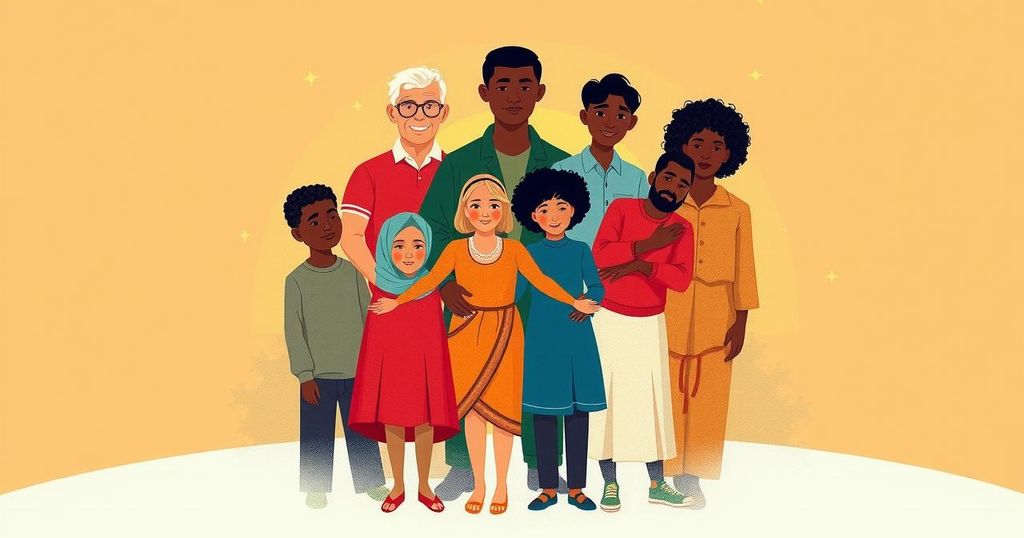IGAD Urges Support for Reconciliation Initiatives in South Sudan

IGAD leaders have called for support from religious, traditional, and civil leaders in South Sudan to promote reconciliation amidst worsening security conditions. They emphasize dialogue as the key to resolving conflicts and advocate for the empowerment of marginalized groups. The meeting highlighted the need for immediate collaboration to support peace initiatives, particularly the Tumaini Initiative, while recognizing the vital role of religious organizations in peace-building efforts.
In a recent assembly, the Intergovernmental Authority on Development (IGAD) emphasized the necessity for support from religious, traditional, and civil leaders to foster reconciliation in South Sudan. This call to action follows their 43rd Extraordinary Assembly and praises ongoing grassroots peace dialogues within the nation, which gained independence from Sudan in July 2011. The assembly particularly encourages the empowerment of women, youth, and other marginalized groups in these initiatives.
The meeting included representatives from eight member states, including Kenya, Uganda, and Ethiopia, who convened virtually on March 12 to address the pressing security issues in South Sudan. Concern was expressed regarding the worsening situation characterized by increasing violence and violations of ceasefire agreements. The leaders reiterated that dialogue is essential for resolving conflicts within the country.
IGAD Executive Secretary Workneh Gebeyehu provided updates on the security challenges, detailing significant clashes that occurred in March 2025 between the white army and government forces, which inflicted heavy casualties. Additionally, a UN operation aimed at evacuating personnel was tragically marred by the loss of life. These developments highlight a critical moment in the nation, potentially leading to a return to extensive hostilities with consequences that could impact the broader region.
To tackle this urgent crisis, the report from the summit suggested immediate collaborative measures to support reconciliation efforts and boost the Tumaini Initiative, which seeks to engage non-signatories to existing agreements. The aim is to build inclusive strategies that unite communities and foster trust as a buffer against divisive narratives.
Religious organizations have been pivotal in peace-building within South Sudan. For instance, on December 20, 2024, Stephene Cardinal Ameyu of Juba’s Catholic Archdiocese expressed hope regarding the Tumaini Peace Initiative despite skepticism due to previous failed agreements. He highlighted the role of the Church as vital for uniting people and resolving conflicts: “If we address these conflicts, peace will prevail in South Sudan.”
The IGAD assembly has reinforced the importance of collaboration among various societal leaders to support reconciliation in South Sudan. Highlights include the need for inclusive strategies to engage marginalized groups and an urgent call for dialogue amid deteriorating security conditions. Notably, the church’s effort in mediating peace exemplifies positive engagement in resolving conflicts, as emphasized by Cardinal Ameyu. Continued efforts such as the Tumaini Initiative are critical for fostering long-lasting peace.
Original Source: www.aciafrica.org








